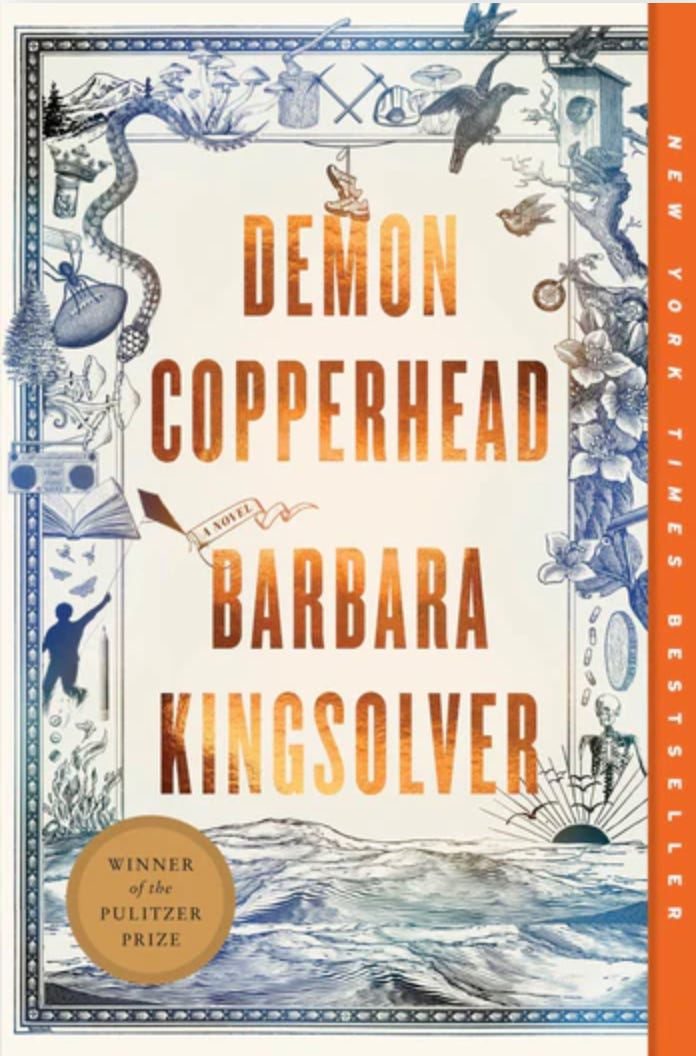Demon Copperhead
The worst people abuse sports
Many people who work in sports get kind of itchy about criticizing billionaires. I’m just as itchy the other way; I can’t believe what they let slide.
I’m years behind Oprah and the Pulitzer committee, and maybe the last person to read Barbara Kingsolver’s 2022 novel Demon Copperhead. The writing is majestic and fun but the story’s an absolute nightmare, more than 500 pages of profound grand-scale suffering. As Kingsolver tells it, Lee County, Virginia, a part of the world once known for coal, comes to be a place where damn near everyone is hooked on pills or worse.
We learn all about it through the eroding dreams of a boy named Demon.
There’s a legacy of coal. One of Demon’s father figures dies with a body broken down by mine work decades earlier, most of his generation is laid off once the mines automated. Nobody in Demon Copperhead has a good word about the…



